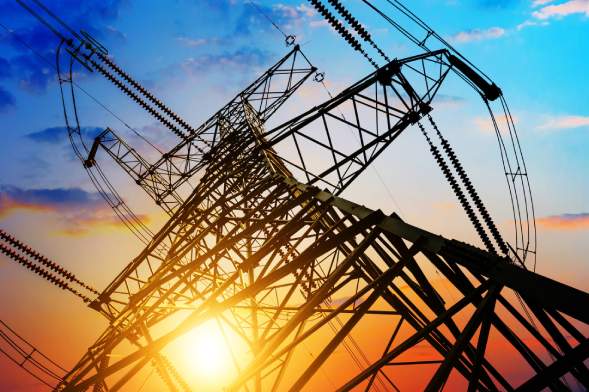CEBA Principles Call for Modernizing Federal Permitting

Efficient Transmission and Clean Energy Project Review Will Enhance Grid Reliability and Bring Billions in Economic Benefits
Washington, D.C. (May 18, 2023) — The Clean Energy Buyers Association (CEBA), representing more than 400 companies and organizations across the United States, today released principles calling for Congress to modernize, appropriately resource, and streamline federal permitting for clean energy and transmission projects without compromising the integrity of the environmental review process.
“CEBA’s member companies and organizations pay for large amounts of electricity and have substantial economic impact across the nation, and they recognize that permitting modernization will enable adding massive amounts of new clean power to the grid while shoring up reliability and reducing costs for customers,” said Bryn Baker, CEBA’s senior director of market and policy innovation. “CEBA’s principles outline energy customers’ vision for reform as we work with policy makers in their efforts to streamline permitting and build the grid of the future.”
“Grid reliability is priority number one for customers, and transmission expansion is critical to ensure affordable, clean power stays on for America’s homes and businesses, especially as we build a grid that will accommodate innovation and electrification in transportation,” said Rob Threlkeld, General Motors’ director of global energy strategy. “We need to at least double our transmission capacity in the next the decade, which means we need permitting reform now.”
“Transmission infrastructure is not being built fast enough in the United States to meet the nation’s clean energy and climate goals,” said Nat Sahlstrom, head of energy, water, and sustainability for Amazon Web Services. “Expanding the transmission grid more quickly is a critical enabler to better serving our growing electrical needs and unlocking investments in a cleaner energy grid.”
CEBA’s principles support permitting modernization that addresses transmission bottlenecks and appropriate National Environmental Policy Act (NEPA) updates, to accelerate clean energy project and transmission approvals. According to Princeton University researchers, up to 80% of the Inflation Reduction Act’s potential carbon emission reductions may not be realized unless the current pace of transmission is more than doubled over the next 10 years.
At the same time, it is imperative that frontline and local communities are proactively consulted and engaged early in energy planning, siting, and permitting processes. Energy customers support the decarbonization of the grid and the benefits it will bring for everyone. Participatory and inclusive decision-making can ensure that the advantages of a clean energy transition benefit all.
CEBA’s principles call for expanding interregional transmission for more reliable, secure, affordable, and clean electricity by granting the Federal Energy Regulatory Commission (FERC) primary siting and permitting authority for high-capacity, regionally significant transmission lines that are in the national interest. FERC should be the single lead agency to coordinate all environmental reviews, utilizing a single record of decision, and projects should be designated as FAST-41 covered projects.
FERC also should be directed to undertake a rulemaking to require planning regions to meet or exceed a minimum transfer capacity between regions. The CEBA principles recommend streamlining NEPA reviews by directing federal permitting agencies to update and expand existing categorical exclusions and consolidate them among agencies. Categorical exclusions should extend to projects that co-locate or fall within an existing footprint of disturbed land or right-of-way or are located on unprotected land previously approved for development.
Federal permitting reform legislation should also establish reliable and faster timelines to complete environmental reviews without compromising the integrity or intent of environmental protections. Early and inclusive stakeholder engagement should be required, as well as a mechanism for mitigation and community benefit commitments.
Customer efforts to procure clean energy are helping drive the clean energy transition that benefits all. According to CEBA’s most recent Deal Tracker, commercial and industrial energy customers in 2022 announced a record-breaking nearly 17 gigawatts of new clean energy deals. Energy customers have voluntarily procured almost 65 gigawatts of clean energy since 2014, equivalent to 41% of all new clean capacity additions during this timeframe.
The Clean Energy Buyers Association is a business trade association that activates a community of energy customers and partners to deploy market and policy solutions for a carbon-free energy system. CEBA’s more than 400 members represent more than $7 trillion in annual revenues and 14 million employees and include institutional energy customers of every type and size – corporate and industrial companies, universities, and cities – that provide critical services and products to the American people. For more information, visit cebuyers.org and follow us on Twitter and LinkedIn.
Media Contact:
Julianne Basinger, jbasinger@cebuyers.org
